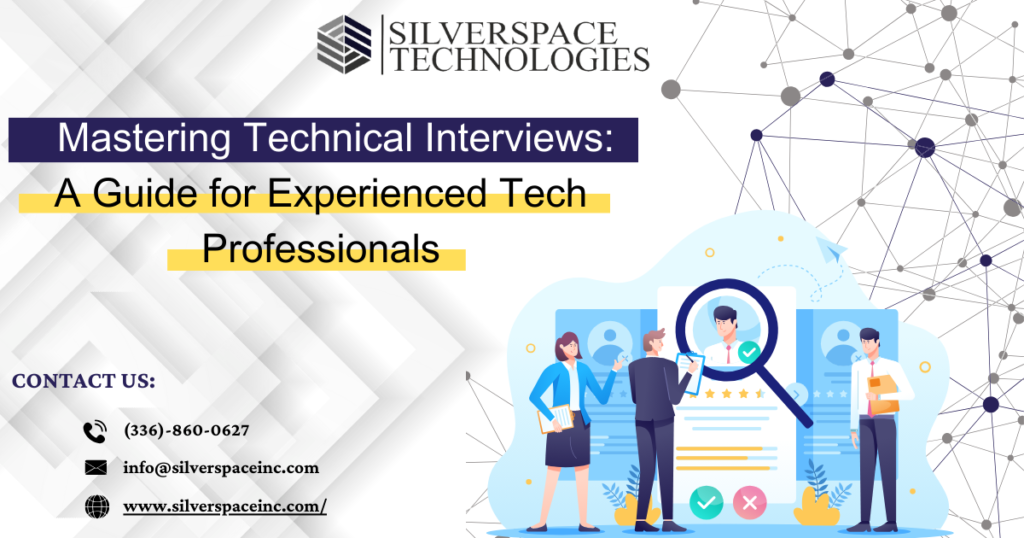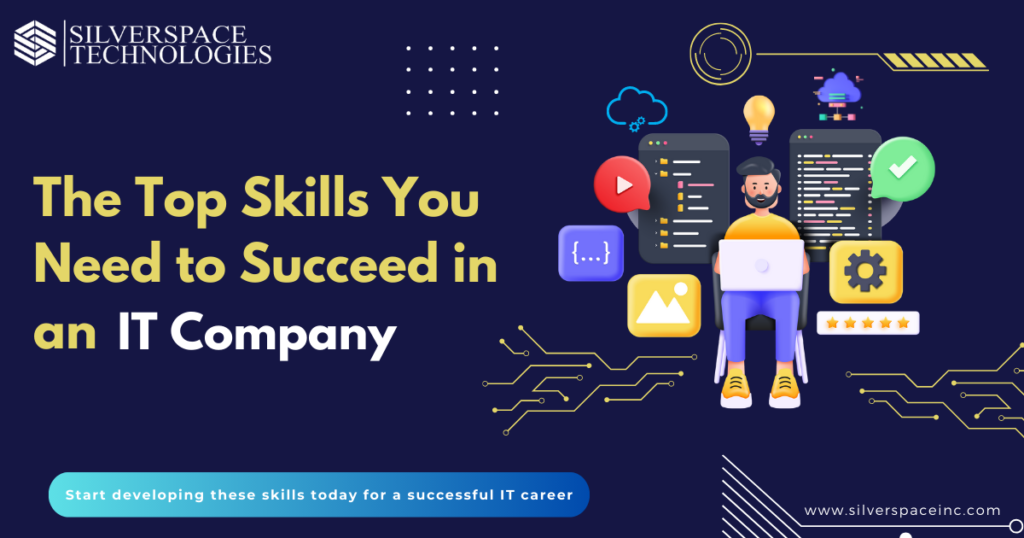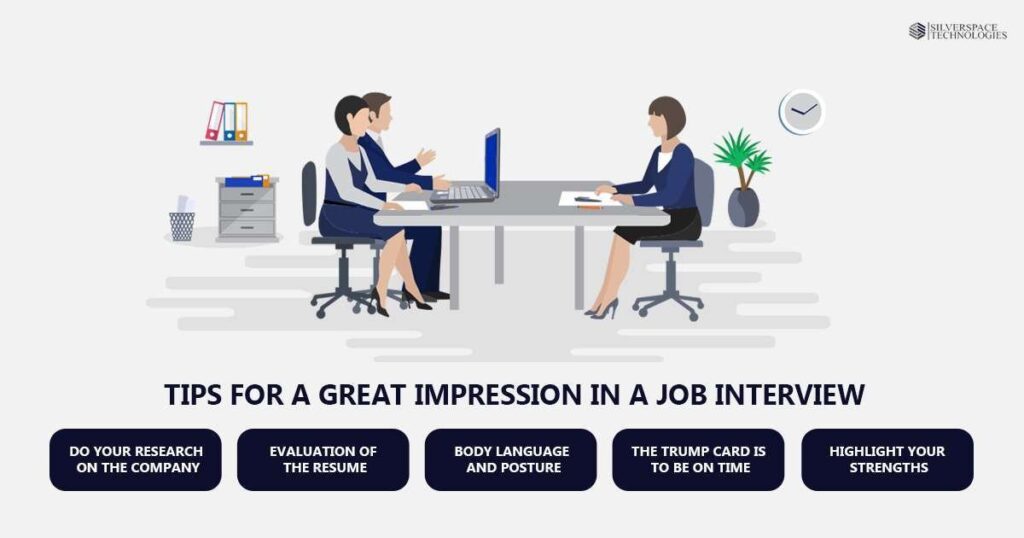Mastering Technical Interviews: A Guide for Experienced Tech Professionals
In today’s rapidly evolving technology landscape, securing a job is more than just having a well-crafted resume. For seasoned tech professionals, the technical interview process can be a formidable hurdle on the path to career advancement. As technology continually advances, interview techniques evolve in tandem. This necessitates tech professionals to remain at the forefront of their game. Whether you’re a veteran developer, a data scientist, a cybersecurity specialist, or occupy any role in the tech industry, this blog aims to equip you with strategies for success in your job interviews. We understand that technical interviews can be nerve-wracking, so we’ve compiled expert advice, insights from experienced tech professionals, and industry wisdom to boost your confidence and set you apart. Recruiting Experienced Tech Professionals in the USA As an experienced tech professional in the USA, you’ve encountered numerous career challenges and are now seeking fresh opportunities or career growth. The tech sector is fiercely competitive, demanding a strategy that showcases your competence, experience, and potential. This segment of our blog outlines essential strategies to thrive in the US tech job market. Leverage Your Professional Network Networking, particularly in the tech sector, is crucial. Connect with former colleagues and industry peers, and attend tech conferences and meetups to expand your network. Many tech job openings are not publicly advertised, underscoring the significance of networking. Your connections may provide valuable insights, direct you to potential employers, or reveal hidden job opportunities. Emphasize Soft Skills Soft skills are vital not only for technical proficiency but also for career progression. Employers value effective communication, teamwork, problem-solving, and adaptability. Showcase instances of cross-functional collaboration or project management that positively impacted your organization’s culture. Present Your Tech Portfolio Seasoned tech professionals often possess a portfolio of high-quality projects. Organize and present your portfolio effectively to demonstrate your skills and experience. Prioritize projects relevant to your target role, and quantify the value of your work whenever possible. A well-structured portfolio complements your resume and offers potential employers insights into your capabilities. Customize Your Resume and Cover Letter Hiring managers appreciate candidates who tailor their applications to the company’s needs. Tailor your resume and cover letter for each job application, emphasizing relevant experiences, achievements, and skills pertinent to the role and organization. Prepare Thoroughly for Technical Interviews The technical interview process can be demanding, so thorough preparation is key. Review fundamental concepts related to your field, practice problem-solving exercises, and consider utilizing online coding platforms and study groups. Familiarize yourself with standard behavioral interview questions to confidently convey your workplace experience and strengths. Collaborate with Recruiters Experienced tech professionals often engage with recruiters, who can provide valuable industry insights, contacts, and access to unadvertised job opportunities. They can also offer guidance on improving your resume and interview preparation. Stay Abreast of Industry Trends The tech industry evolves rapidly, and employers seek individuals with up-to-date knowledge. Dedicate time to learning new skills, such as by attending workshops, taking online courses, or obtaining certifications. This not only impresses potential employers but also demonstrates your adaptability in the ever-changing tech landscape. How to Conduct an Effective Technical Interview? Technical interviews, while intimidating, can open doors to new career prospects for tech professionals. The correct approach and skill refinement can transform technical interviews into accomplishments. Explore the best practices for practical technical interviews to enhance your preparedness for success. Understand Job Requirements A solid grasp of the specific job requirements is crucial. Understand the role’s nature and the essential skills. This knowledge enables tailored interview preparation. Review Key Concepts Tech skills are built from fundamentals. Review basics such as data structures, algorithms, and programming languages. This foundational knowledge enhances problem-solving abilities and provides a strong knowledge base. Practice Coding Coding, like any skill, improves with practice. Tackle coding problems on various platforms, beginning with simpler tasks and progressively tackling more challenging ones. Experiment with different problem-solving methods and embrace innovation. Bring Ideas to Life In addition to coding activities, bring your creativity to life through real-world projects. Develop applications to showcase your knowledge and passion. Contributions to open-source projects and personal projects on platforms like GitHub distinguish you and increase your visibility. Conclusion Navigating the dynamic and ever-changing tech industry, especially in the face of pivotal technical interviews, can be daunting. Our blog has served as a valuable resource, offering expert strategies and tips to empower experienced tech professionals like you to excel in the job interview process. At Silverspace Inc., we take pride in being a pioneering IT staffing and consultancy company dedicated to assisting international IT graduates. Inspired by the challenges faced by IT graduates in securing technical jobs, we’ve created a comprehensive support platform. From crafting resumes to honing interview skills, we equip our candidates with the tools needed to succeed in US-based tech companies. Our ethical approach and personalized guidance consider each candidate’s unique background, fostering an environment conducive to career growth. Allow us to be your unwavering companion on your journey to success as we strive to unlock new opportunities and help you thrive in the competitive tech landscape. For more informative blogs, visit our website and explore our posted article on LinkedIn.
Mastering Technical Interviews: A Guide for Experienced Tech Professionals Read Post »



